Strictly Personal
A Foreign Policy Guide For President Tinubu, By Chris Adetayo
Published
11 months agoon
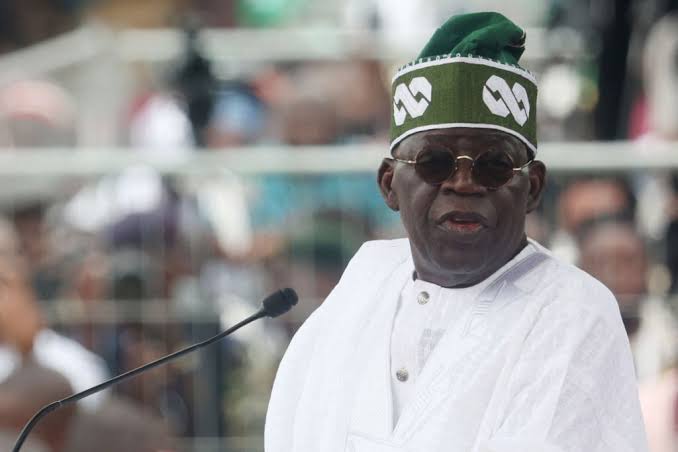
After eight years of the Muhammadu Buhari-led Presidency, Nigeria’s democratic journey continues with the inauguration of Bola Ahmed Tinubu as the President on 29th of May, 2023. He is now the 16th President of Nigeria, and the 5th in the Fourth Republic.
As with changes in leadership anywhere in the world, so much will change in the new administration. Key amongst the changes will be personnel and policies. For a country like Nigeria, with its many challenges, the changes that President Tinubu will make will be keenly watched. On the domestic end, he has already commenced on this track, by bringing a decisive end to the fuel subsidy regime that has dominated economic discourse in the country for more than three decades. More will certainly follow.
But even as domestic policies will rightly dominate his attention in the first few months, interests will also be high with regards to the direction of the country’s foreign policy and its relations with the rest of the world. For good reason – Nigeria’s foreign policy in the last decade, indeed after the Obasanjo Presidency, has been rudderless and ineffectual for the most part.
What is the current Foreign Policy of Nigeria? Ask theoreticians, practitioners and observers of Nigeria’s foreign engagements and chances are that you will get as many answers as there are respondents. This speaks to a lack of strategy, focus and leadership. Things got so bad that all too often it seemed that policy and execution was being set and driven by the recently-formed Nigerians in Diaspora Commission (NIDCOM), headed by Mrs Abike Dabiri-Erewa, rather than by the Ministry of Foreign Affairs (MFA). The then Minister, Geoffrey Onyeama, for someone who held one of the most important offices of state, was painfully low key and diffident.
President Tinubu must start by seeking and putting in place the right peg in the rounded hole that is the MFA. In doing this, he must begin by asking himself the question, “where is today’s Bolaji Akinyemi”? For all the ills of the military in our past national life, they gave us some of the most fantastic public servants. In Bolaji Akinyemi, a Professor of International Relations, Nigeria got a Foreign Minister (between 1985 and 1987) who knew the intricacies of the international system, understood what it meant to set foreign policy to drive domestic goals, and build national prestige on the global scale. He was both a theorist and a practitioner. Can we find such a man or woman in today’s Nigeria, with the knowledge to articulate a proper foreign policy for Nigeria in the nascent free-for-all global regime, and with the energy to drive its execution? President must drag the net wide and find us that person.
Importantly, what President Tinubu must avoid is turning the MFA into the dumping ground of politicians. Such persons tend to spend their time focused on their domestic political careers to the detriment of their core role. He must also find a balance between churn and an unwillingness to make change in the face of lack of results. In the 16 years of the Peoples Democratic Party (PDP) in power, Nigeria had 11 Ministers of Foreign Affairs, an exceedingly high turnover rate for such an important post. Most of the Ministers did not stay long enough in office to make any meaningful impact. Conversely, the last Minister, under the All Progressive Party (APC) Government, was in office for 8 years and seemed to sleep-walk through it all. Neither scenario served the nation well and must be avoided.
On the policy side, the President must start from the time-honoured precept that foreign policy is an extension of domestic policy. Accordingly, he must set Nigeria’s foreign policy to drive and complement his avowed domestic agenda. No soothsayer is required to point out that security, the economy, and national unity will continue to dominate the actions of the Federal Government.
Focusing the country’s foreign policy to better handle the country’s security challenges will require increasingly efficient and effective partnerships with key actors in the global arena. The rise of domestic terrorists over the past decade and a half, and their strong links to international non-state actors, demands a foreign policy that is strongly linked with the nation’s defence policies. In this wise, Nigeria must take lessons from the United States whose foreign policy is the joint responsibility of the State Department (using soft powers) and the Defence Department (using the military). Together, they find a way to project America as a strong yet friendly nation to most of the world, and jointly focus on keeping the country and its peoples safe through various allies, pacts and programmes. Our MFA and the Ministry of Defence must replicate the same, leveraging on each other’s expertise and assets to unlock enduring solutions for the nation’s security.
Growing Nigeria’s economy will also require a new foreign policy focus. Unlike his predecessor, President Tinubu should cause a complete review of our economic diplomacy playbook. The reluctance of Nigeria to be at the forefront of the Africa Continental Free Trade Area (AfCFTA) cost the nation in terms of setting the agenda for this great initiative. Since then, Nigeria has been playing catch-up to the likes of Ghana, Kenya, Ethiopia and Rwanda. A recalibration is required that pushes Nigeria right into the centre of all discussions about African integration efforts at the African Union and ECOWAS. Nigeria must return to its role as Africa’s brain box, providing thought leadership for the continent.
One practice of the last decade that President Tinubu should put an end to is the shuttle diplomacy that sees the President of Nigeria joining other African Heads of State to honour invitations from individual Asian, European and American Leaders. In the past decade, African leaders have sat down at the capitals of great and not-so-great powers including the United States, France, Turkey, India and China. Fed with the usual promises of aid and support, many of these summits have added precious little to the development of the continent. Even worse, they depict the whole continent as a beggarly bunch whose leaders have no sense of self-worth. President Tinubu must get Nigeria off this path and convince the rest of Africa to do the same. If any country wishes to engage Africa as a collective, the AU platform should serve very well. Should the rest of Africa wish to continue on this slovenly journey, President Tinubu must separate Nigeria from them.
One important institution that President Tinubu is inheriting is NIDCOM, established in 2017 by the Buhari Administration. Charged with the responsibility of engaging Nigerians in the diaspora on policies and developments in the country, and to harness this rich resource for national development, NIDCOM has had mixed success. Initially bogged down by bureaucratic challenges (office space, staffing etc), it soon found itself stepping into the exclusive space of the MFA by issuing statements on behalf of the Government in direct response to the actions of foreign governments. While the ship has been steadied, more needs to be done. Giving the abiding love of diaspora Nigerians for their native land and their greater unity abroad, NIDCOM needs to tap into this in the pursuit of national cohesion and unity at home. There is also a need to subsume it under the MFA, especially as many of its functions are consular in nature. Doing so will eliminate the frequent public communications disharmony between them. A dotted line reporting to the Ministry of Information and National Orientation will further help to position it for better service.
Finally, the new President has a gift from young Nigerians that he must grasp and use on the foreign policy front. That is Nigeria’s greatest soft power – music. In 2022, this writer wrote of the need to leverage the growing popularity of Nigeria’s Afrobeats music on the global stage and provided a template for doing so. Since then, while our artistes have become even more popular and won even more awards and broken even more records, Nigeria has done little or nothing to integrate this into its foreign policy. This failure leaves the country unable to take full advantage of the great value that should accrue to the country through the exploits of its globally recognised music. President Tinubu must quickly remedy this situation.
In the final analysis, President Bola Ahmed Tinubu has an opportunity to chart a new, more focused and energetic direction for Nigeria’s foreign policy. The world is waiting for Nigeria to re-emerge as Africa’s beacon of light, its surest voice, and its economic powerhouse. Just as he cannot afford to fail domestically, he also cannot afford to do so on the international stage. So much is riding on what he will do and say over the next 4 years. May he succeed.
Chris Adetayo is a national and international affairs analyst
You may like
-
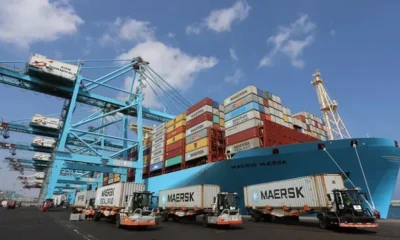

Nigeria gets $600 million investment from Danish firm Moller-Maersk
-
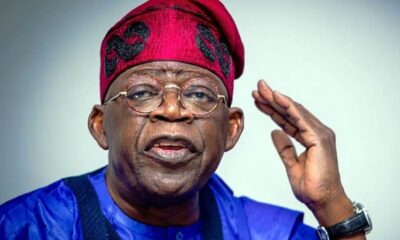

I saved Nigeria from bankruptcy by removing fuel subsidy— Tinubu
-


Behind the News: All the backstories to our major news this week
-


This Sudan war is too senseless; time we ended it, By Tee Ngugi
-


Nigeria: Bureaux De Change operators to harmonise retail FX market
-
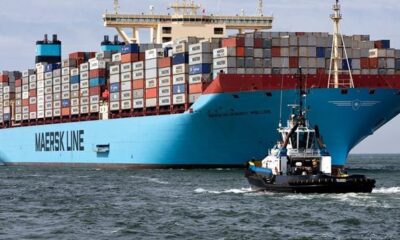

Nigeria loses $9.2 billion to foreign shipowners
Strictly Personal
This Sudan war is too senseless; time we ended it, By Tee Ngugi
Published
1 day agoon
April 28, 2024
Why are the Sudanese Armed Forces (SAF) and the paramilitary Rapid Support Forces (RPF) engaged in a vicious struggle? It is not that they have ideological, religious or cultural differences.
Not that people should fight because of these kinds of differences, but we live in a world where social constructions often lead to war and genocide. It is not that either side is fighting to protect democracy. Both sides were instruments of the rapacious dictatorship of Omar el-Bashir, who was overthrown in 2019.
Both are linked to the massacres in Darfur during Bashir’s rule that led to his indictment by the International Criminal Court for crimes against humanity. They both stood by as ordinary, unarmed people took to the streets and forced the removal of the Bashir regime.
None of these entities now fighting to the last Sudanese citizen has any moral authority or constitutional legitimacy to claim power. They both should have been disbanded or fundamentally reformed after the ouster of Bashir.
The SAF and the RSF are fighting to take over power and resources and continue the repression and plunder of the regime they had supported for so long. And, as you can see from news broadcasts, they are both well-versed in violence and plunder.
Since the fighting began in 2023, both sides have been accused of massacres that have left more than 30,000 people dead. Their fighting has displaced close to 10 million people. Their scramble for power has created Sudan’s worst hunger crisis in decades. Millions of refugees have fled into Chad, Ethiopia and South Sudan.
The three countries are dubious places of refuge. Chad is a poor country because of misrule. It also experiences jihadist violence. Ethiopia is still simmering with tensions after a deadly inter-ethnic war.
And South Sudan has never recovered from a deadly ethnic competition for power and resources. African refugees fleeing to countries from which refugees recently fled or continue to flee sums up Africa’s unending crisis of governance.
Africa will continue to suffer these kinds of power struggles, state failure and breakdown of constitutional order until we take strengthening and depersonalising our institutions as a life and death issue. These institutions anchor constitutional order and democratic process.
Strong independent institutions would ensure the continuity of the constitutional order after the president leaves office. As it is, presidents systematically weaken institutions by putting sycophants and incompetent morons in charge. Thus when he leaves office by way of death, ouster or retirement, there is institutional collapse leading to chaos, power struggles and violence. The African Union pretends crises such as the one in Sudan are unfortunate abnormally. However, they are systemic and predictable. Corrupt dictatorships end in chaos and violence.
Tee Ngugi is a Nairobi-based political commentator.
Strictly Personal
Air Peace, capitalism and national interest, By Dakuku Peterside
Published
2 weeks agoon
April 16, 2024
Nigerian corporate influence and that of the West continue to collide. The rationale is straightforward: whereas corporate activity in Europe and America is part of their larger local and foreign policy engagement, privately owned enterprises in Nigeria or commercial interests are not part of Nigeria’s foreign policy ecosystem, neither is there a strong culture of government support for privately owned enterprises’ expansion locally and internationally.
The relationship between Nigerian businesses and foreign policy is important to the national interest. When backing domestic Nigerian companies to compete on a worldwide scale, the government should see it as a lever to drive foreign policy, and national strategic interest, promote trade, enhance national security considerations, and minimize distortion in the domestic market as the foreign airlines were doing, boost GDP, create employment opportunities, and optimize corporate returns for the firms.
Admitted nations do not always interfere directly in their companies’ business and commercial dealings, and there are always exceptions. I can cite two areas of exception: military sales by companies because of their strategic implications and are, therefore, part of foreign and diplomatic policy and processes. The second is where the products or routes of a company have implications for foreign policy. Air Peace falls into the second category in the Lagos – London route.
Two events demonstrate an emerging trend that, if not checked, will disincentivize Nigerian firms from competing in the global marketplace. There are other notable examples, but I am using these two examples because they are very recent and ongoing, and they are typological representations of the need for Nigerian government backing and support for local companies that are playing in a very competitive international market dominated by big foreign companies whose governments are using all forms of foreign policies and diplomacy to support and sustain.
The first is Air Peace. It is the only Nigerian-owned aviation company playing globally and checkmating the dominance of foreign airlines. The most recent advance is the commencement of flights on the Lagos – London route. In Nigeria, foreign airlines are well-established and accustomed to a lack of rivalry, yet a free-market economy depends on the existence of competition. Nigeria has significantly larger airline profits per passenger than other comparable African nations. Insufficient competition has resulted in high ticket costs and poor service quality. It is precisely this jinx that Air Peace is attempting to break.
On March 30, 2024, Air Peace reciprocated the lopsided Bilateral Air Service Agreement, BASA, between Nigeria and the United Kingdom when the local airline began direct flight operations from Lagos to Gatwick Airport in London. This elicited several reactions from foreign airlines backed by their various sovereigns because of their strategic interest. A critical response is the commencement of a price war. Before the Air Peace entry, the price of international flight tickets on the Lagos-London route had soared to as much as N3.5 million for the economy ticket. However, after Air Peace introduced a return economy class ticket priced at N1.2 million, foreign carriers like British Airways, Virgin Atlantic, and Qatar Airways reduced their fares significantly to remain competitive.
In a price war, there is little the government can do. In an open-market competitive situation such as this, our government must not act in a manner that suggests it is antagonistic to foreign players and competitors. There must be an appearance of a level playing field. However, government owes Air Peace protection against foreign competitors backed by their home governments. This is in the overall interest of the Nigerian consumer of goods and services. Competition history in the airspace works where the Consumer Protection Authority in the host country is active. This is almost absent in Nigeria and it is a reason why foreign airlines have been arbitrary in pricing their tickets. Nigerian consumers are often at the mercy of these foreign firms who lack any vista of patriotism and are more inclined to protect the national interest of their governments and countries.
It would not be too much to expect Nigerian companies playing globally to benefit from the protection of the Nigerian government to limit influence peddling by foreign-owned companies. The success of Air Peace should enable a more competitive and sustainable market, allowing domestic players to grow their network and propel Nigeria to the forefront of international aviation.
The second is Proforce, a Nigerian-owned military hardware manufacturing firm active in Rwanda, Chad, Mali, Ghana, Niger, Burkina Faso, and South Sudan. Despite the growing capacity of Proforce in military hardware manufacturing, Nigeria entered two lopsided arrangements with two UAE firms to supply military equipment worth billions of dollars , respectively. Both deals are backed by the UAE government but executed by UAE firms.
These deals on a more extensive web are not unconnected with UAE’s national strategic interest. In pursuit of its strategic national interest, India is pushing Indian firms to supply military equipment to Nigeria. The Nigerian defence equipment market has seen weaker indigenous competitors driven out due to the combination of local manufacturers’ lack of competitive capacity and government patronage of Asian, European, and US firms in the defence equipment manufacturing sector. This is a misnomer and needs to be corrected.
Not only should our government be the primary customer of this firm if its products meet international standards, but it should also support and protect it from the harsh competitive realities of a challenging but strategic market directly linked to our national military procurement ecosystem. The ability to produce military hardware locally is significant to our defence strategy.
This firm and similar companies playing in this strategic defence area must be considered strategic and have a considerable place in Nigeria’s foreign policy calculations. Protecting Nigeria’s interests is the primary reason for our engagement in global diplomacy. The government must deliberately balance national interest with capacity and competence in military hardware purchases. It will not be too much to ask these foreign firms to partner with local companies so we can embed the technology transfer advantages.
Our government must create an environment that enables our local companies to compete globally and ply their trades in various countries. It should be part of the government’s overall economic, strategic growth agenda to identify areas or sectors in which Nigerian companies have a competitive advantage, especially in the sub-region and across Africa and support the companies in these sectors to advance and grow to dominate in the African region with a view to competing globally. Government support in the form of incentives such as competitive grants ,tax credit for consumers ,low-interest capital, patronage, G2G business, operational support, and diplomatic lobbying, amongst others, will alter the competitive landscape. Governments and key government agencies in the west retain the services of lobbying firms in pursuit of its strategic interest.
Nigerian firms’ competitiveness on a global scale can only be enhanced by the support of the Nigerian government. Foreign policy interests should be a key driver of Nigerian trade agreements. How does the Nigerian government support private companies to grow and compete globally? Is it intentionally mapping out growth areas and creating opportunities for Nigerian firms to maximize their potential? Is the government at the domestic level removing bottlenecks and impediments to private company growth, allowing a level playing field for these companies to compete with international companies?
Why is the government patronising foreign firms against local firms if their products are of similar value? Why are Nigerian consumers left to the hands of international companies in some sectors without the government actively supporting the growth of local firms to compete in those sectors? These questions merit honest answers. Nigerian national interest must be the driving factor for our foreign policies, which must cover the private sector, just as is the case with most developed countries. The new global capitalism is not a product of accident or chance; the government has choreographed and shaped it by using foreign policies to support and protect local firms competing globally. Nigeria must learn to do the same to build a strong economy with more jobs.
EDITOR’S PICK
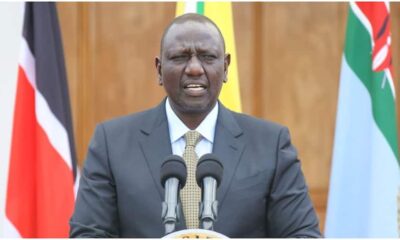

African leaders want record World Bank financing to address climate change
Ahead of a World Bank conference scheduled for later this year, African leaders on Monday called for rich countries to...
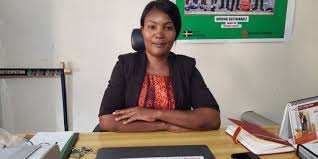

Conservationist, Kearns, names intolerance and digital media abuse as threats to media freedom
Nsama Kearns, the Executive Director of Care for Nature, speaks on the indispensable role of a free media in society....


Nigeria gets $600 million investment from Danish firm Moller-Maersk
Nigeria’s presidency said on Sunday that President Bola Tinubu had secured an investment of $600 million from Danish shipping and...
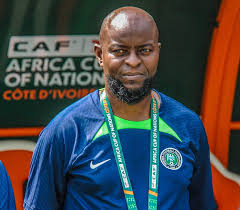

Nigeria’s football federation appoints Finidi George as Super Eagles coach
The Nigeria Football Federation (NFF) has approved the appointment of former international, Finidi George, as the new head coach of...


I saved Nigeria from bankruptcy by removing fuel subsidy— Tinubu
Nigerian President, Bola Tinubu, on Sunday, boasted that he saved Nigeria from going bankrupt by removing fuel subsidy on his...


Behind the News: All the backstories to our major news this week
Over the past week, there were lots of important stories from around the African continent, and we served you some...
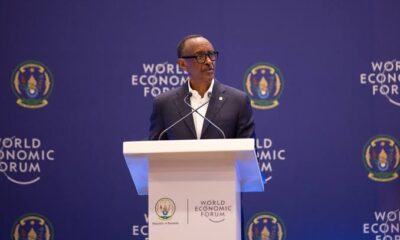

Video: How Rwanda is driving Ai revolution in Africa
In this video, the Managing Director of Rwanda’s Centre for the Fourth Industrial Revolution, Crystal Rugege, speaks on the country’s...


This Sudan war is too senseless; time we ended it, By Tee Ngugi
Why are the Sudanese Armed Forces (SAF) and the paramilitary Rapid Support Forces (RPF) engaged in a vicious struggle? It...
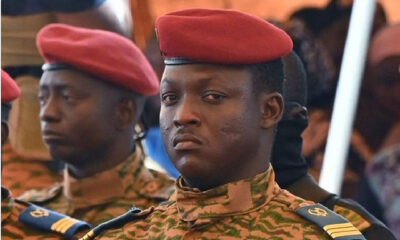

Burkina Faso investigating reports of northern killings
A government spokesman has revealed that Burkina Faso is looking into reports that 223 people were killed by the Burkinabe...


Nigeria: Bureaux De Change operators to harmonise retail FX market
Amidst the volatility around the Nigerian currency and its foreign exchange market, the Association of Bureaux De Change Operators in...
Trending
-

 Behind the News1 day ago
Behind the News1 day agoBehind the News: All the backstories to our major news this week
-

 Politics1 day ago
Politics1 day agoBurkina Faso investigating reports of northern killings
-

 Musings From Abroad2 days ago
Musings From Abroad2 days agoNigeria loses $9.2 billion to foreign shipowners
-

 VenturesNow1 day ago
VenturesNow1 day agoNigeria: Bureaux De Change operators to harmonise retail FX market


